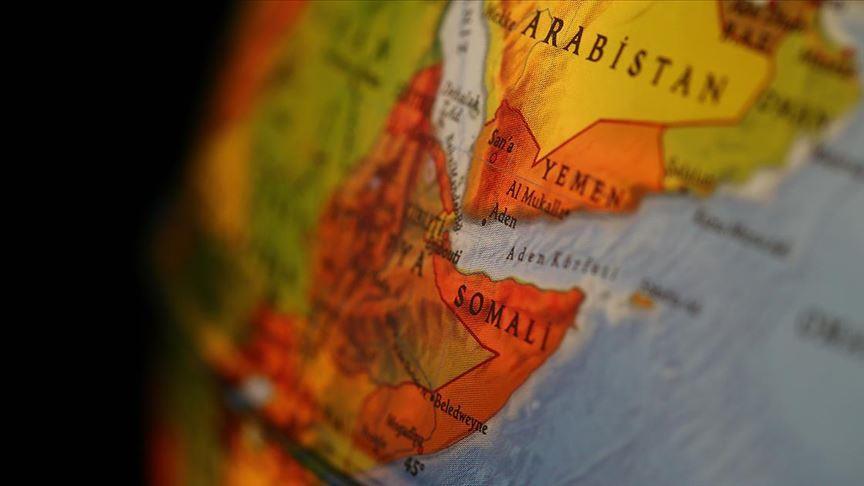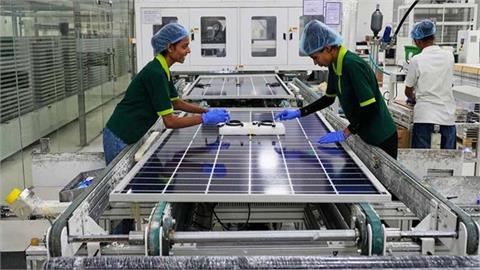The end of January this year saw important news regarding Turkey’s energy scene from President Tayyip Erdogan in statements he made to reporters while returning from Berlin after the Libya summit. While talking about the maritime boundary delimitation agreement with Libya and Turkey’s exploration vessels in the eastern Mediterranean,
Rahmi Kopar holds a Ph.D. from the Center for Energy, Petroleum and Mineral Law and Policy, University of Dundee and an LLM from the University of Vienna
The end of January this year saw important news regarding Turkey’s energy scene from President Tayyip Erdogan in statements he made to reporters while returning from Berlin after the Libya summit. While talking about the maritime boundary delimitation agreement with Libya and Turkey’s exploration vessels in the eastern Mediterranean, he also revealed for the first time that Somalia invited Turkey to explore oil in its seas.
Even though this invitation was made public for the first time in January, the basis for this relationship was set up in 2016. In Mogadishu, on June 3, 2016, Turkey and Somalia signed a Memorandum of Understanding (MOU) on cooperation in the field of energy and mining.
This agreement"aims to establish a comprehensive cooperation and sets out certain principles for cooperation between the Parties in the fields of energy and mining, with the purpose of developing and promoting the sectors of petroleum, gas, electricity, mineral and mining, as well as petro-chemistry, on the basis of equality, mutual respect for sovereignty and the mutual benefits of both Parties,”according to Article 1 of the MOU.
However, this MOU had been set aside due to the July 15 Gulenist coup attempt in 2016 in Turkey and the extraordinary developments thereafter. In January 2019, this agreement was brought to the country’s agenda once again when Erdogan submitted the MOU to parliament for approval. A recent development regarding this MOU arose just after Erdogan spoke of this invitation and on Feb. 20, 2020, the Committee on Foreign Affairs of the Turkish Parliament adopted this legislative proposal and forwarded it to the Plenary.This law approving the agreement to pass from the Plenary is expected in the near future.
In the meantime, the Somali President Mohamed Abdullahi Farmaajo ratified the new Somali Petroleum Law last month on Feb. 8. Now, Somalia has a brand-new legal framework to regulate its potential resources and the new law seems sufficiently detailed and fit for purpose. It establishes the Somali Petroleum Authority (SPA) and grants it with regulatory powers over petroleum operations. Production Sharing Agreements are the main legal mechanism for oil exploration and production under this law, while the SPA will oversee negotiations.
Until now, Somalia had neither oil production nor any data on its proven reserves. There are, however, a couple of reports based on seismic surveys conducted in the area that claim reserves of around 30 billion barrels of oil in 15 offshore blocks that Somalia is planning to offer for bidding rounds later this year. If accurate, Somalia could be elevated to a significant place on the world oil map.
Developments over the last two months largely show that Turkey is planning to accept Somalia’s invitation and will most likely take part in bidding rounds when they open. The state-owned Turkish Petroleum Corporation and its subsidiaries, which also conduct the drilling operations in the eastern Mediterranean, will likely be responsible for the exploration operations in Somalia. It is yet unknown whether private energy companies in Turkey will participate in these bidding rounds.
Turkey and Somalia have had a close and warm relationship for over a decade. Turkey has its biggest overseas military base in Somalia and over the past three years has trained Somali soldiers while thousands of Somali students have been studying at Turkish universities. Moreover, Turkey’s largest embassy complex in the world is located in Mogadishu. Also, Somalia is one of Turkey’s major humanitarian aid recipients. Turkey is also benefiting from this reciprocal relationship with Turkish businesspeople conducting profitable business activities in Somalia. Therefore, it is only logical for Turkey to build on this relationship and take part in Somalia’s oil exploration pursuits too.
The MOU outlines that the framework for negotiations and subsequent operations be based on equality, mutual respect for sovereignty and benefits for both parties. Although this kind of statement can be found in many agreements, it may not always materialize in practice. Sometimes the benefits and profits of multinational corporations take precedence over the welfare of a country and its citizens, and pledges made can easily be forgotten, especially in the energy sector.
It would be advisable for Turkey to approach negotiations with the Somali Petroleum Authority with some flexibility and with priority for the needs of the Somali people rather than through a neo-liberal capitalist lens. Turkey’s endeavors in Somalia are not merely in seeking profits alone but are based on building on historic bilateral ties to encompass greater future relations. This does not mean that Turkish companies will not factor in making returns on their investments, however, there must be a red line that should not be crossed at the expense of the Somali people.
In this regard, the introduction of a more robust dispute resolution mechanism based on mutual respect would offer a practical solution in ensuring good relations and avoid their complete breakdown in the event of disputes while negotiating a production sharing agreement. A more accommodating mechanism would allow the resolution of disputes while hopefully avoiding their escalation to costly legal arbitration while averting irreparably damaged relations.
Anadolu Agency




